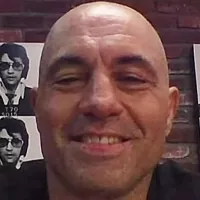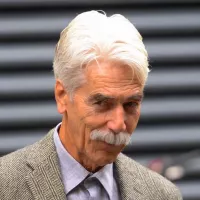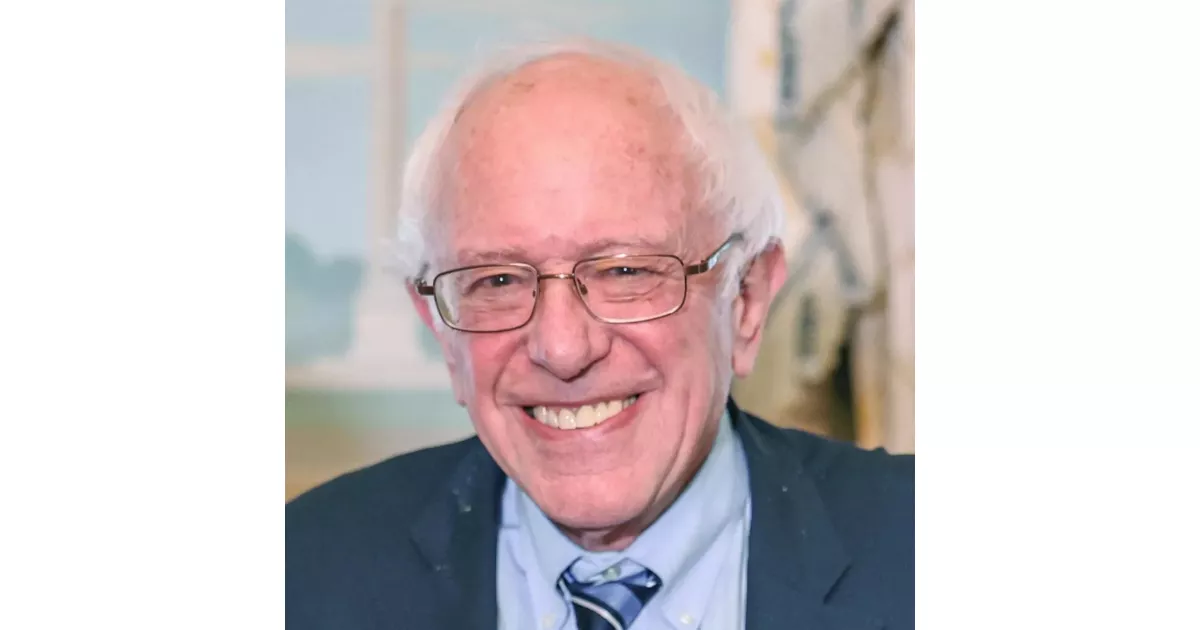A success timeline featuring the most significant achievements of Bernie Sanders.
Bernie Sanders is a prominent American politician currently serving as a U.S. Senator for Vermont since 2007. As the longest-serving independent in Congress, he closely aligns with the Democratic Party, having caucused with them throughout his career and twice campaigned for their presidential nomination. Sanders is a leading figure in the modern American progressive movement, advocating for policies such as universal healthcare, free college tuition, and a higher minimum wage. He is known for his populist rhetoric and criticism of economic inequality.
1981: Campaign against waterfront development plans
In 1981, Bernie Sanders campaigned against Burlington developer Tony Pomerleau's unpopular plans to convert the industrial waterfront into expensive condominiums, hotels, and offices. Running under the slogan "Burlington is not for sale," he successfully supported a plan that redeveloped the waterfront area into a mixed-use district with housing, parks, and public spaces.
1981: Elected mayor of Burlington, Vermont
In 1981, Bernie Sanders ran as an independent for mayor of Burlington, Vermont, and defeated the Democratic incumbent.
1990: Benefitted from NRA opposition to Peter Smith
In 1990, Bernie Sanders' bid to become a US Representative benefitted from the National Rifle Association of America opposing the campaign of Peter Smith due to Smith's reversed stance on firearm restrictions and waiting periods for handgun purchases.
1991: Elected to the U.S. House of Representatives
In 1991, Bernie Sanders was elected to the US House of Representatives, becoming the first independent elected since 1952 and the first socialist elected since 1948.
October 24, 1992: Cancer Registries Amendment Act signed into law
On October 24, 1992, President George H. W. Bush signed the Cancer Registries Amendment Act into law, after it was passed by the House on October 6 and the Senate bill was passed.
2005: Named the "amendment king" by Rolling Stone
In 2005, Rolling Stone called Bernie Sanders the "amendment king" for his ability to get more roll call amendments passed than any other congressman during the period since 1995, when Congress was entirely under Republican control.
2007: Becomes a senator
In 2007, Bernie Sanders became a senator after serving as a representative from 1991.
December 2009: Affordable Care Act Provision
In mid-December 2009, Sanders successfully added a provision to the Affordable Care Act to fund $11 billion to community health centers, especially those in rural areas.
August 2011: High Approval Rating
In August 2011, a poll found that Sanders's approval rating was 67% and his disapproval rating 28%, making him then the third-most popular US senator.
2012: Reelected to the Senate
Bernie Sanders was reelected in 2012 with 71% of the vote.
2013: Support for Comprehensive Immigration Reform
In 2013, Sanders supported the Gang of Eight's comprehensive immigration reform bill after securing a $1.5 billion youth jobs program provision.
June 9, 2014: Sponsorship of Veterans' Access to Care Act
On June 9, 2014, Sanders sponsored the Veterans' Access to Care through Choice, Accountability, and Transparency Act of 2014 to reform the Department of Veterans Affairs.
July 31, 2014: Passage of Veterans' Access to Care Act
On July 31, 2014, Sanders' Veterans' Access to Care Act was incorporated into the House version of the bill, and passed both chambers.
August 7, 2014: Veterans' Access to Care Act Signed into Law
On August 7, 2014, the Veterans' Access to Care through Choice, Accountability, and Transparency Act of 2014, which incorporated Sanders' bill, was signed into law by President Obama.
2014: Senator Ranking
Sanders ranked third most popular senator in 2014.
June 2015: Campaign events draw overflow crowds
In June 2015, Bernie Sanders's campaign events began to draw unexpectedly large crowds across the country, marking a significant surge in his campaign's visibility and support.
July 1, 2015: Campaign stop in Madison, Wisconsin
On July 1, 2015, Bernie Sanders's campaign stop in Madison, Wisconsin, attracted the largest crowd of any 2016 presidential candidate up to that point, with an estimated turnout of 10,000 people.
July 29, 2015: Online Organized Meetup
On July 29, 2015, a meetup organized online brought 100,000 supporters to more than 3,500 simultaneous events nationwide.
November 2015: Most Popular US Senator
In a November 2015 Morning Consult poll, Sanders reached an 83% approval rating among his constituents, making him the most popular US senator.
December 4, 2015: Time's Person of the Year Readers' Poll
On December 4, 2015, Bernie Sanders won Time's 2015 Person of the Year readers' poll with 10.2% of the vote, though he did not receive the editorial board's award.
January 2016: $20 Million Raised in January
Sanders' presidential campaign reached 3.25 million donations by the end of January 2016, raising $20 million in that month alone.
March 20, 2016: Honorary Lushootseed Name
On March 20, 2016, Bernie Sanders was given an honorary Lushootseed name, dxʷshudičup, by Deborah Parker in Seattle, honoring his focus on Native American issues during his presidential campaign.
2016: Most Popular US Senator
Sanders ranked as the most popular senator in 2016.
March 2017: Highest Net Favorability
In March 2017, Fox News found Sanders to have the highest net favorability at +28 points of any prominent politician included in its poll.
April 2017: Highest Favorability Rating
In April 2017, a nationwide Harvard-Harris Poll found that Sanders had the highest favorability rating among all the political figures included in the poll.
May 30, 2017: Honorary Degree from Brooklyn College
On May 30, 2017, Bernie Sanders received an honorary degree of Doctor of Humane Letters from Brooklyn College.
2018: Reelected to the Senate
Bernie Sanders was reelected in 2018 with 67% of the vote.
February 2019: Yemen War Powers Resolution Passed by the House
In February 2019, Sanders' bill to end US support for the Saudi-led military intervention in Yemen, passed the House by a vote of 247-175.
June 2019: Sanders campaign raises the most money
As of June 2019, the Sanders campaign had raised the most money in the 2020 Democratic field, including funds from his 2018 Senate and 2016 presidential races.
September 2019: Campaign reaches one million donors
In September 2019, the Sanders campaign became the fastest in US history to reach one million donors, demonstrating significant grassroots support.
October 1, 2019: Campaign raises $25.3 million in third quarter
On October 1, 2019, the Sanders campaign announced it had raised $25.3 million in the year's third quarter, with an average donation of $18, making it the largest quarterly sum raised by any Democratic candidate.
February 2020: Sanders polls in first place
From mid-February 2020 to the start of March, Sanders polled in first place in the Democratic primary ahead of Joe Biden and was described by the press as the party's presidential front-runner.
July 2025: Joint Resolution of Disapproval Gains Majority Support
In July 2025, Sanders introduced a Joint Resolution of Disapproval to block arms to Israel, which garnered support from 27 senators, a majority of Senate Democrats.
Mentioned in this timeline

Joe Rogan is an American podcaster UFC color commentator comedian...

Donald John Trump is an American politician media personality and...

Jesse Jackson is an American civil rights activist politician and...

Pope Francis served as the head of the Catholic Church...

Barack Obama the th U S President - was the...
Fox News Channel FNC is a conservative American news and...
Trending

57 minutes ago Sam Elliott: A Legendary Career and Enduring Impact in Hollywood
58 minutes ago CBS News Faces Bias Claims, Producer Departs, and CNN Takeover Speculation Surfaces.

58 minutes ago Tyrese Maxey Leads 76ers to Victory Over Heat with Record-Breaking Performance

58 minutes ago Lainey Wilson releases 'Dead End Red Dirt Road' for 'The Gray House' soundtrack.

58 minutes ago Patrick Schwarzenegger and Abby Champion shine in Tommy Hilfiger's new campaign.

2 hours ago Sarah Pidgeon shines at SAG Awards and reflects on Carolyn Bessette Kennedy's style.
Popular

Jesse Jackson is an American civil rights activist politician and...

Hillary Diane Rodham Clinton is a prominent American politician lawyer...

XXXTentacion born Jahseh Dwayne Ricardo Onfroy was a controversial yet...

Kashyap Pramod Patel is an American lawyer who became the...

Jim Carrey is a Canadian-American actor and comedian celebrated for...

Michael Joseph Jackson the King of Pop was a highly...
